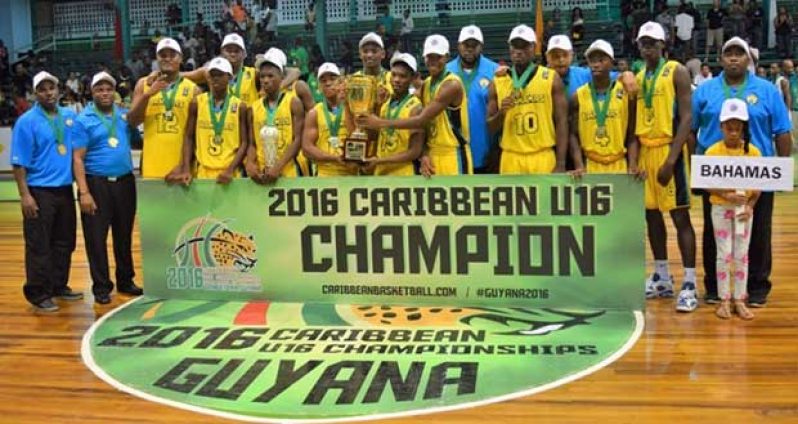By Peter Haynes
THE Caribbean Basketball Confederation’s Under -16 Championships was a complete success in terms of the logistics from the Guyana Amateur Basketball Federation’s Local Organising Committee.

This opinion was expressed by Mr Glyne Clarke, President of the C.B.C, in an exclusive interview with the Guyana Chronicle yesterday.He categorically stated that the Championships was second to none.
In terms of the developmental aspects from the CBC perspective, this was the first Championship for the youths in seven years. The last such championship was held in 2008 in Antigua and Barbuda.
Clarke said that essentially what happened was a generation of athletes who lost the opportunity to play competitive basketball as a teams as teenagers before moving on to the senior championships.
He reminded that FIBA has several age categories, which are the Under 15, Under 17 and Under 19.
Clarke lamented that CBC has not been able to host one of these age category championships since 2008, so most countries lost the opportunity to have their athletes play in those categories.
Developmentally, these championships gave the youngsters the opportunity to play basketball internationally and gain valuable experience.
The CBC President said that logistically, the Guyana Basketball Federation executed a championship which was second to none over the years. He said that the transportation was always on time; the Cliff Anderson Sports Hall (CASH) was totally refreshed, and is now a legacy for the GABF and the other sports, which is played at the Sports Hall.
The refurbishing of the’ CASH’ gave the championships an opportunity to use a very good floor, updated equipment while at the same time providing the opportunity for officials to understand what modern officiating is all about, particularly as required by FIBA.
Speaking about the developmental aspect going forward for the top three teams – boys and girls – who will participate in the Centrobasket Championships, Clarke stated that the tournament comprises of teams from Central America and the Caribbean, including Mexico, Panama, Belize, Costa Rica and Guatemala.
Already qualified for the tournament are Puerto Rico, the Dominican Republic and Cuba.
Clarke stated that the Caribbean teams, the Bahamas, Guyana and Suriname will be in for a very tough tournament, as the teams from Cuba, Puerto Rico, Mexico and the Dominican Republic have a higher level of exposure from a young age.
He said that the Bahamas teams will represent the CBC division very well since that country is very competitive at this as well as at the senior level.
This is as a result of the situation that many of their players attend schools and play in the USA. Clarke started that without a doubt the other teams from the region going forward to Centrobasket will struggle unless they are able to get other players drafted from the USA.
Clarke stated that the CBC has given FIBA a proposal to render some level of financial assistance to the Caribbean countries to fully manage the ” new competition system”.
He stated that while the championships were in progress in Guyana, the Regional Director, Alberto Garcia conducted a seminar/ workshop with representatives of the participating countries to update them on the new competition system and also the three-by-three competition.
Clarke explained that the new competition system comprises of teams playing home and away matches for a series, consisting of a group of four countries playing a round robin tournament. These matches will be played in November 2017, February 2018 and May 2018.
Clarke reminded that this would a challenge for Federations in the Caribbean to stage these tournaments, especially in attracting spectators and more so sponsorship. This,he said, is a tremendous undertaking, given the fact that immediately after playing a home game, they are required to travel to play the away match.
The CBC president said one of the biggest challenges for the Federation is the extremely high cost of travel within the Region. This will be very prohibitive for most of the countries.
In addition, he said that most of the Caribbean islands have relatively small populations compared to South American countries, which, in addition to having larger stadiums,also have the ability to have sell- out crowds.




.jpg)









